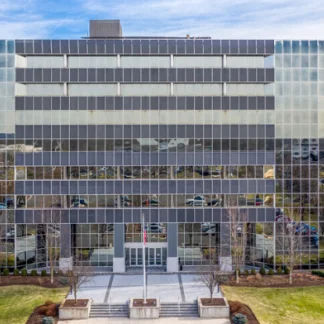Rutgers - Program for Addictions Consultation And Treatment
Rutgers - Program for Addictions Consultation And Treatment offers outpatient tr...
Anew Wellness offers outpatient treatment for individuals with alcohol and/or substance addiction. The program includes individual counselling, group therapy, family support and more. Anew Wellness is located at Somerset, New Jersey.
Anew Wellness is compromised to provide treatment for patients with substance addiction. They believe patients can feel better with the proper treatment. Their compassionate staff and experienced clinicians will work with the patients to create the correct path to wellness.
Anew Wellness will provide highly customized programs to help clients achieve the best possible outcomes. Their treatment programs offer wellness and stability. From the initial evaluation they ensure clients are supported with professional and compassionate staff.
The first evaluation program has a fee of $300.00
Contact us for more information: (732) 328-2639

Connect with Anew Wellness by calling their admissions team directly.
(732) 328-2639 Website Get DirectionsResearch clearly demonstrates that recovery is far more successful and sustainable when loved ones like family members participate in rehab and substance abuse treatment. Genetic factors may be at play when it comes to drug and alcohol addiction, as well as mental health issues. Family dynamics often play a critical role in addiction triggers, and if properly educated, family members can be a strong source of support when it comes to rehabilitation.
Group therapy is any therapeutic work that happens in a group (not one-on-one). There are a number of different group therapy modalities, including support groups, experiential therapy, psycho-education, and more. Group therapy involves treatment as well as processing interaction between group members.
In individual therapy, a patient meets one-on-one with a trained psychologist or counselor. Therapy is a pivotal part of effective substance abuse treatment, as it often covers root causes of addiction, including challenges faced by the patient in their social, family, and work/school life.
Life skills trainings involve all the skills a person must have in order to function successfully in the world. These include time management, career guidance, money management, and effective communication. Truly successful addiction recovery is based on the ability to not only live substance-free, but to thrive. Life skills teaches the practical necessities of functioning in society, which sets clients up for success in life, and therefore sobriety.
Group therapy is any therapeutic work that happens in a group (not one-on-one). There are a number of different group therapy modalities, including support groups, experiential therapy, psycho-education, and more. Group therapy involves treatment as well as processing interaction between group members.
In individual therapy, a patient meets one-on-one with a trained psychologist or counselor. Therapy is a pivotal part of effective substance abuse treatment, as it often covers root causes of addiction, including challenges faced by the patient in their social, family, and work/school life.
Life skills trainings involve all the skills a person must have in order to function successfully in the world. These include time management, career guidance, money management, and effective communication. Truly successful addiction recovery is based on the ability to not only live substance-free, but to thrive. Life skills teaches the practical necessities of functioning in society, which sets clients up for success in life, and therefore sobriety.
In individual therapy, a patient meets one-on-one with a trained psychologist or counselor. Therapy is a pivotal part of effective substance abuse treatment, as it often covers root causes of addiction, including challenges faced by the patient in their social, family, and work/school life.
Life skills trainings involve all the skills a person must have in order to function successfully in the world. These include time management, career guidance, money management, and effective communication. Truly successful addiction recovery is based on the ability to not only live substance-free, but to thrive. Life skills teaches the practical necessities of functioning in society, which sets clients up for success in life, and therefore sobriety.
Life skills trainings involve all the skills a person must have in order to function successfully in the world. These include time management, career guidance, money management, and effective communication. Truly successful addiction recovery is based on the ability to not only live substance-free, but to thrive. Life skills teaches the practical necessities of functioning in society, which sets clients up for success in life, and therefore sobriety.
Rutgers - Program for Addictions Consultation And Treatment offers outpatient tr...
New Hope - Outpatient is dedicated to the treatment of adults and adolescents af...
Damon House is a trusted residential treatment center in New Brunswick, NJ, spec...
Robert Wood Johnson University Hospital – New Brunswick located in New Jersey, i...